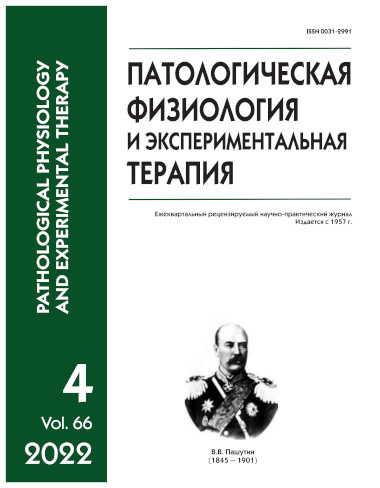The effect of lymphostimulating peptide on the dynamics of mortality in experimental myocardial infarction
Abstract
The relevance of this issue is determined by steadily high mortality and disability of the population in Russia and worldwide due to cardiovascular diseases, among which myocardial infarction (MI) is on the first place among the causes of death. Aim. To evaluate the effect of direct-action peptide-type lymph-stimulators on the mortality from MI. Methods. The study was performed on 44 mongrel white male rats anesthetized with 8% chloral hydrate, i.v. MI was modeled by the Selye method in the Kogan modification. The opioid peptide was administered to animals intraperitoneally 15 minutes before and 15 minutes after the simulation. The lymph-stimulating activity of the peptide was studied on mesenterial blood and lymphatic microvessels of the rat small intestine. Morphological examination of macro- and micro-preparations of the heart was performed. Results. The therapeutic use of the lymph-stimulating peptide reduced the mortality of animals by 18% compared with the control. Conclusion. The beneficial effect of the peptide Tyr-D-Ala-eeeGly-Phe-Leu-Glu on the MI mortality suggests that the lymph system can be considered as a reserve designed for the recovery of circulation.






